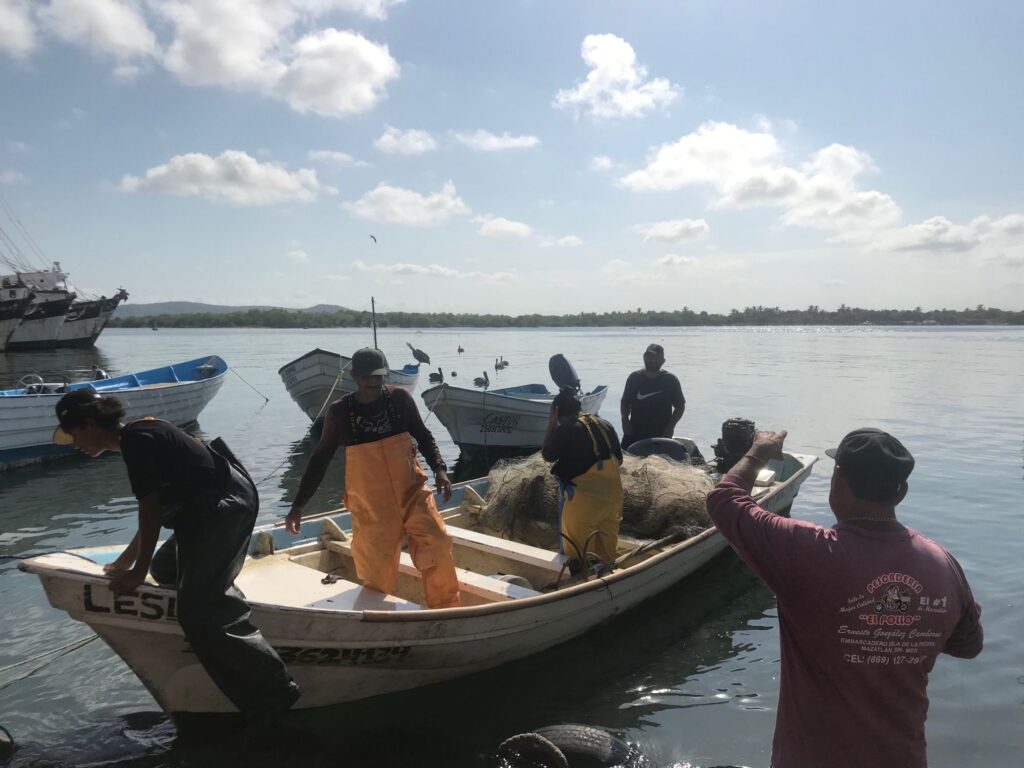The past decade has seen a shift in the understanding of “sustainable fisheries” and a growing recognition of small-scale fishers. A new FAO book outlines major trends and discusses rights, livelihoods, and risks from the fishers’ perspectives. The book was presented at a webinar on social justice, organised by Too Big To Ignore and SIANI’s expert group, Small-scale Fisheries in Latin America.
The year 2015 marked a turning point for small-scale fisheries in the global debate, with three influential publications on the topic. The Voluntary Guidelines for Securing Sustainable Small-Scale Fisheries in the Context of Food Security and Poverty Eradication were adopted by the member states of the Food and Agriculture Organization of the United Nations (FAO), bringing much needed attention to the previously ignored sector. The guidelines were closely aligned with another 2015 publication, the 2030 Agenda, and its fundamental principle that no one should be left behind. A third influential book that year was Coasts for People where Professor Fikret Berkes advocated for a new integrated approach to coastal management.
Ten years later, FAO is following up on what has happened this past decade with the new book Governing for Transformation towards Sustainable Small-Scale Fisheries, an open-access volume edited by Fikret Berkes and Nicole Franz. The ten chapters are co-written by leading experts on different topics, one of whom is Milena Arias-Schreiber, coordinator of SIANI’s expert group Small-scale Fisheries in Latin America.
The book was presented at a two-part webinar organised by Too Big To Ignore and the SIANI expert group, which also included a session about the impact oil spills have on small-scale fisheries in Lobitos, Peru.
Many forms of knowledge
In the session Sustainable small-scale fisheries: Why it is not possible without social justice, TBTI’s Global Director, Ratana Chuenpagdee, discussed major trends in Governing for Transformation with the two editors. Fikret Berkes was pleased to see how research has evolved in the past decade and become much more interdisciplinary. He also appreciated the growing exchange between scientific knowledge and other forms of expertise:
“Fishers’ knowledge is something I am particularly interested in, and it is really important if we are to talk about governing for social justice. We have to manage a wide range of social issues that fishers consider important and their perspectives, their values, their knowledge.”
Tips for co-management
Terms like “management” have started to take on a new meaning, with more focus on social dimensions and participation. Nicole Franz noted how the Voluntary Guidelines frequently refer to participation of vulnerable groups, a shift in language that shapes the understanding of the fishing sector and raises expectations on inclusion.
The new FAO book takes this one step further by also discussing specific governance challenges from the perspective of small-scale fisheries. One chapter focuses on principles for management and use of common resources, building on the research of Elinor Ostrom, recipient of the 2009 Nobel Memorial Prize in Economics.
Another chapter shows how decisions about fishing can become more sustainable and fairer if fishers are allowed to take part. But Nicole Franz noted that successful co-management requires trust between partners and that it must involve co-production of knowledge:
“It is fundamental to have this collaboration between the different users, the different stakeholders that are involved in management.”
Calls for blue justice
The second half of the webinar, Blue justice alert – Oil spill and swell in Lobitos, Peru, was moderated by Milena Arias Schreiber in Spanish. Residents of Lobitos in northern Peru had been invited to talk about the massive impact a recent oil spill has had on their community. The spill was detected on 21 December in the sea outside Lobitos near an oil refinery and images of oil-smeared beaches, birds and turtles soon surfaced on the internet.
“We are living through a very difficult time after the oil spill,” said Ivan Vite Bancavan who is active in the town’s environmental committee. He is deeply worried about the effects on local ecosystems and species but also concerned about the impact on the community. Like so many others in Lobitos, Ivan comes from a family of fishers, traditionally a dominant occupation in the region. In recent years many residents have, however, joined the booming tourism sector after Lobitos gained fame as a surfers’ paradise. But all that came to an abrupt halt in December – the oil killed the fish and made the tourists cancel their hotel reservations.
“The good thing is that we have come together as a community and formed a committee with representatives from different sectors to negotiate with the company,” Ivan said, continuing:
“We ask for a 100% restoration of the damaged ecosystems and that the company applies methods of bioremediation to restore the ecosystems to their previous state.”
His uncle Tulio Chapilliquén has been an artisanal fisher for over 40 years, using sustainable methods like handline fishing that he learned from his parents and grandparents. But competing industry-scale fishing and environmental damage pose growing threats. Tulio, too, is worried about the consequences of what happened in December, but notes that the response is different nowadays, from the private sector as well as government agencies:
“When I started, there were some huge spills but, in those days, there was not so much focus on the environment as there is today and not as many photos and videos. Now we are better able to share (what happens) and ask companies to assume responsibility.”
The SIANI Working Group Small-scale Fisheries in Latin America will continue to monitor the situation in Lobitos, providing support when possible to the small-scale fisheries and coastal communities, and will document it as part of their initiative.
